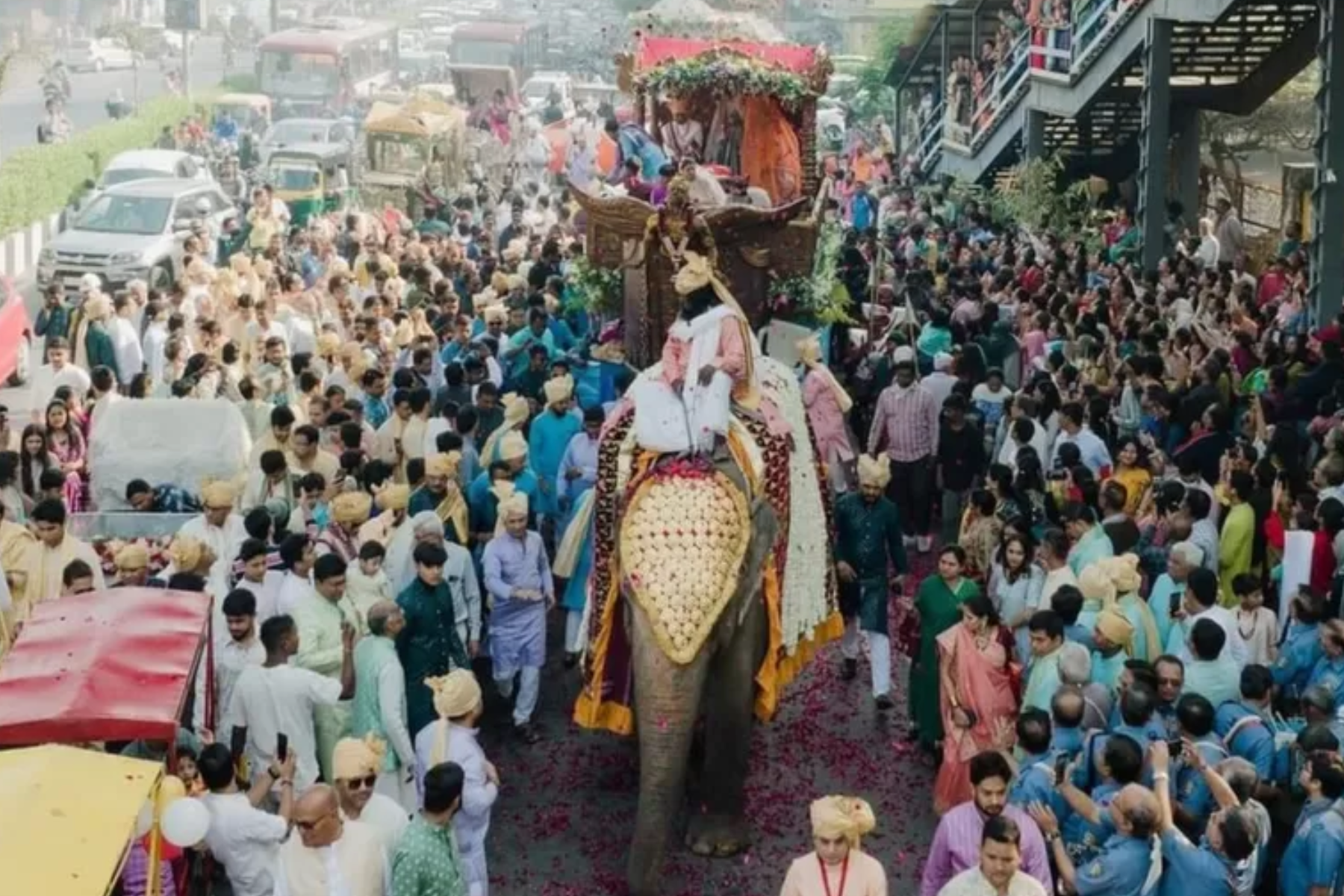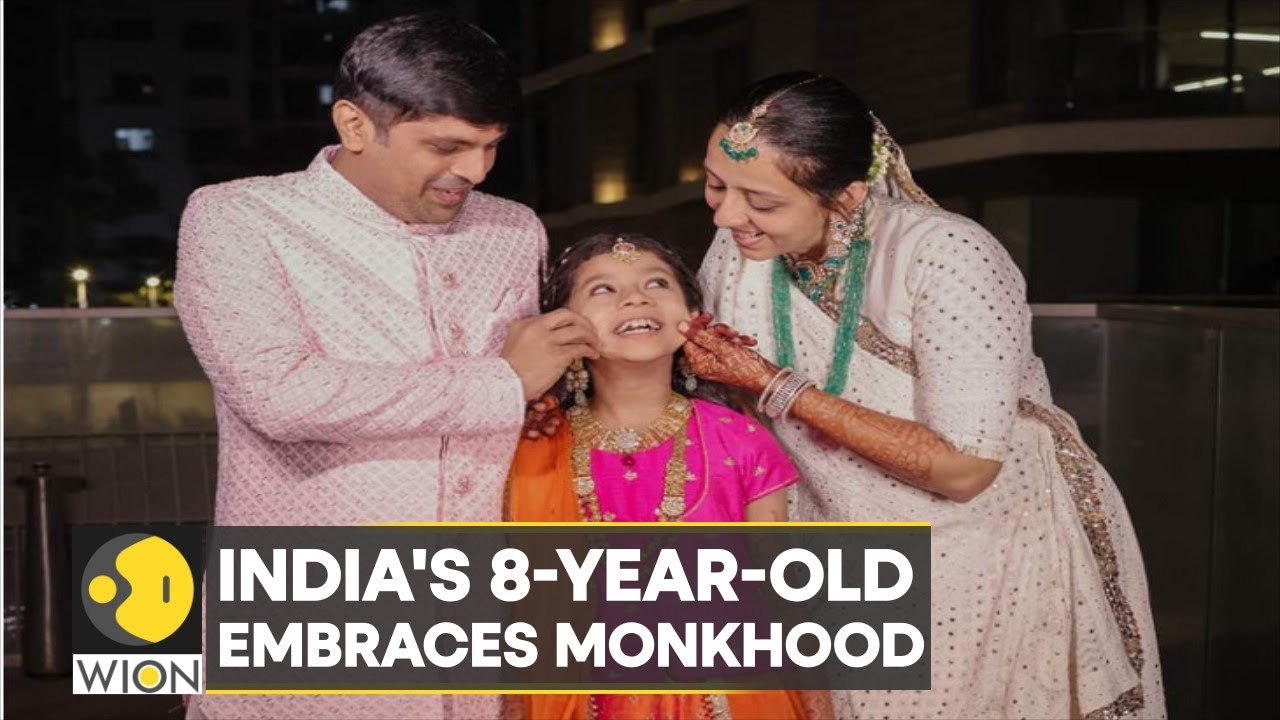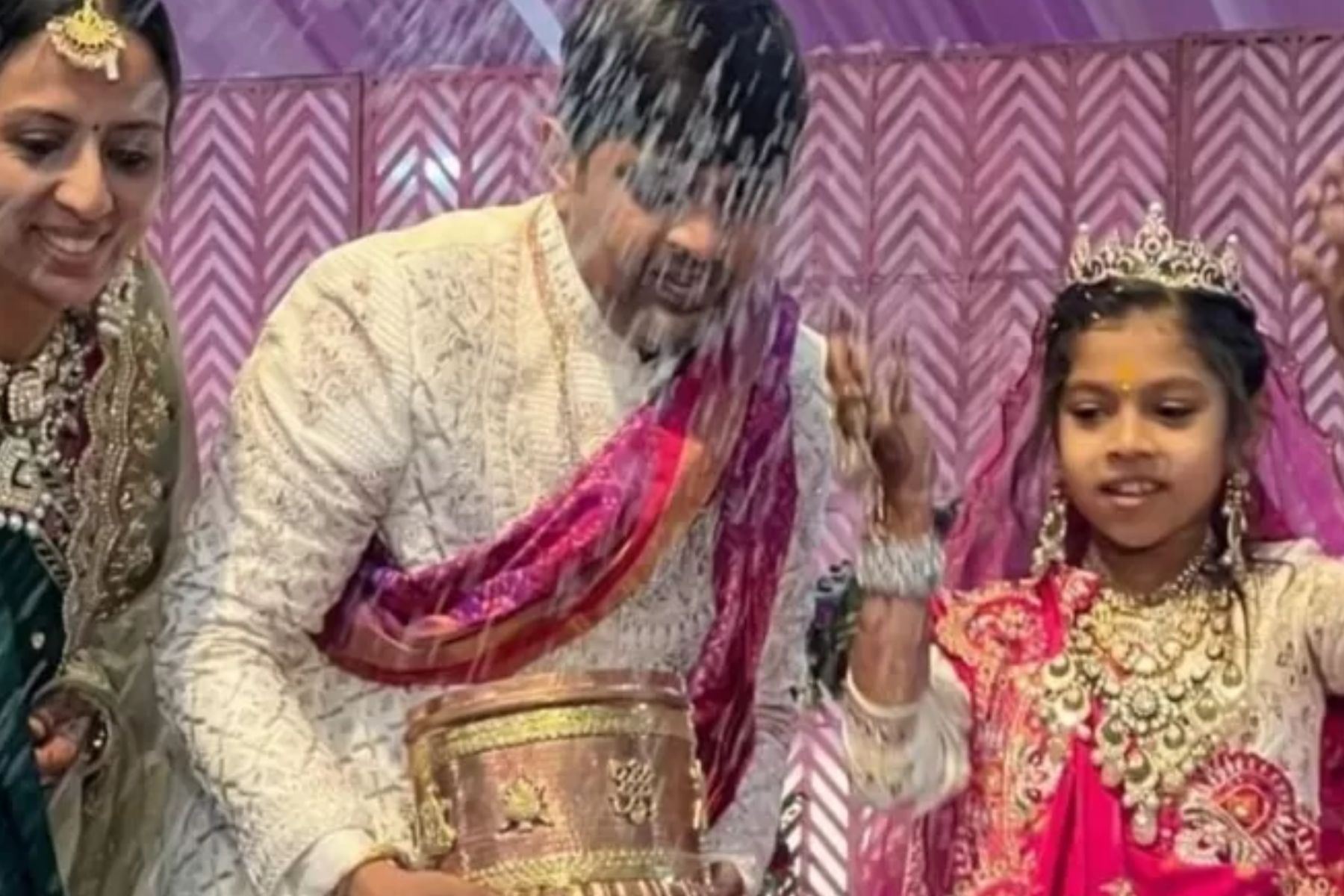Devanshi Sanghvi, an Indian diamond heiress who became a nun, could have grown up to run a diamondbusinessworth a lot of money.
But the daughter of a rich Indian diamond merchant now wears rough white saris, goes barefoot, and goes door-to-door asking for money.
Because Devanshi, the older of Dhanesh and Ami Sanghvi's two daughters, gave up the world and became a nun last week.
The Sanghvis is part of the 4.5 million Jains who follow Jainism, which started in India more than 2,500 years ago and is one of the oldest religions in the world.
Over Time, More Jains Have Given Up The World
Religious experts say that the number of Jains who give up the world has been growing quickly over the years, though it is rare for a child as young as Devanshi to give up the world.
Tens of thousands of people went to a ceremony last Wednesday in Surat, which is in the western state of Gujarat. There, Devanshi took "Diksha," or vows of renunciation, in front of senior Jain monks.
She went to the event in the city's Vesu area, where it was held, with her parents. She was dressed in fine silks and wore jewels. On her head was a crown with diamonds.
After the ceremony, she stood with other nuns and covered her shaved head with a white sari. In pictures, she is holding a broom, which she would now use to move bugs out of her way so she wouldn't step on them by accident.
Since then, Devanshi has lived in a Upashraya, which is a Jain monastery with monks and nuns.
Kirti Shah, a Surat-based diamond merchant who is a friend of the family and also a local Bharatiya Janata Party politician says:
“„She can no longer stay at home, her parents are no longer her parents, and she's a Sadhvi [a nun] now. A Jain nun's life is really austere. She will now have to walk everywhere, she can never take any kind of transport, she'll sleepon a white sheet on the floor, and cannot eat after sundown.- Kirti Shah
Sanghvis is the only Jain sect that lets children become monks. The other three only let adults become monks.
People know that Devanshi's parents are "extremely religious," and Indian media has quoted family friends as saying that the girl has been "attracted to spiritual life since she was a toddler."
The Times of India said that Devanshi has never watched TV or movies or gone to malls or restaurants.
"From a young age, Devanshi has been praying thrice a day and even performed a fast at the age of two," the paper said.
The day before her renunciation ceremony, her family put together a big parade in Surat to celebrate.
Thousands of people watched as camels, horses, ox carts, drummers, and men in turbans with canopies walked through the streets. Dancers and performers on stilts also put on a show.
Devanshi and her family were sitting in a chariot pulled by an elephant as people threw rose petals at them.

In Mumbai and Antwerp, Belgium, where the Sanghvis have businesses, there were also processions.
Even though the practice is supported by the Jain community, Devanshi's renunciation has sparked a debate, with many people wondering why her family couldn't wait until she was an adult before making such big decisions for her.
Mr. Shah was invited to the Diksha ceremony, but he didn't go because he doesn't like the idea of a child giving up the world. He said, "no religion should allow children to become monks." He asked:
“„She's a child, what does she understand about all this? Children can't even decide what stream to study in college until they are 16. How can they make a decision about something that will impact their entire life?- Kirti Shah
When a child who gives up the world is idolized and the community celebrates, it can seem like a big party to her. However, Prof. Nilima Mehta, a child protection consultant in Mumbai, says that the "difficulty and deprivation the child will go through is immense."
"Life as a Jain nun is very very tough," she says.
A lot of other people in the community are also worried about a child being taken away from her family at such a young age.
Since the newsgot out, many people have taken to social media to criticize the family, saying that the Sanghvis aren't doing right by their child.
Mr. Shah says that the government needs to step in and stop these kids from giving up the world.
But it's not likely to happen. I called the office of Priyank Kanungo, head of the National Commission for Protection of Child Rights (NCPCR), to find out if the government was going to do anything about Devanshi's case.
His office said he didn't want to say anything about it because it was a "sensitive matter."
But activists say Devanshi's rights have been broken.
Breaking The Legal Law And Principles Out Of Spiritual World Law
Prof. Mehta tells those who say the child is becoming a monk "out of her own free will" that "a child's consent is not consent in law."
“„And if that decision deprives the child of education and recreation, then it is a violation of her rights. Legally 18 is the age when someone makes an independent decision. Until then a decision on her behalf is made by an adult - such as her parents - who have to consider whether it's in her best interest.- Prof. Mehta
But Dr. Bipin Doshi, who teaches Jain philosophy at Mumbai University, says, "You cannot apply legal principles in the spiritual world."
"Some are saying a child is not mature enough to take such decisions, but there are children with better intellectual capabilities who can achieve much more than adults at a young age. Similarly, there are children who're spiritually inclined, so what is wrong if they become monks?" he asks.

India: 8-year-old daughter of diamond merchant in Surat embraces monkhood | Devanshi Sanghvi | WION
Dr. Doshi says that Devanshi is also not being hurt in any way.
"She may be deprived of traditional entertainment, but is that really necessary for everyone? And I don't agree that she'll be deprived of loveor education - she'll receive love from her guru and she will learn honesty and non-attachment. Is that not better?"
Dr. Doshi also says that Devanshi can always go back to the world if she changes her mind and thinks that "she took a wrong decision under the mesmerizing effects of her guru."
Prof. Mehta asks, "Then why not let her decide when she's an adult?"
"Young minds are impressionable and in a few years, she may think this is not the life she wants," she says, adding that there have been cases where women have changed their minds once they have grown up.
Prof. Mehta says that a few years ago, she helped a young Jain nun who had run away from her center because she had been through so much trauma.
Another girl who became an ascetic when she was nine years old caused something of a scandal in 2009 when she ran away with her boyfriend and got married.
In the past, people have also gone to court with petitions, but Prof. Mehta says that any kind of social change is hard because of how sensitive it is.
"It's not just among Jains; Hindu girls are married to deities and become devadasis [though the practice was outlawed in 1947] and little boys join akhadas [religious centers], in Buddhism children are sent to live in monasteries as monks.
"Children are suffering under all religions, but challenging it is blasphemy," she says, adding that families and societies need to be educated that "a child is not your possession".
